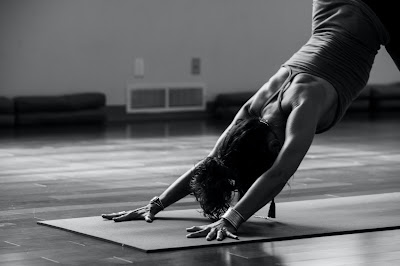Yoga Teacher Language
Yoga Teaching cues for Yoga Teachers from Yoga Teachers
Whether you are starting out as a Yoga Teacher or you want to improve your Teaching skills, it is valuable to watch your own language. I recommend recording your own teaching and practicing with the recording only. It is the quickest way to realize how clearly your own instructions are and how your language feels if you practice the asana yourself.
To start out, here are a few words and sentences to avoid;
"Quickly" - in Yoga we foster mindfulness and perfect the control of the body and mind. All words that indicate a rush shall be avoided as a Teacher.
"We are gonna" - As a Yoga Teacher you have a different role than a student in the class; you orchestrate the class.
"If you cannot do this pose" - If you want to give alternative asana to the students, phrase your sentences in an encouraging way. "Here is an option for the more advanced Yogis in the room" is a more charming way to teach students of different levels.
"And now" - A common mistake of Beginner Teachers is to use to fill up gaps with words because we are used to fill up uncomfortable gaps in conversations. It is best to leave some space and time for the students to enjoy the class and avoid the gap-fillers.
Use the right words to create beautiful images in the student's minds
As a Yoga Teacher you might not be new to the concept that our subconscious responds to images more than to words. Using the right words to create images in the student's minds can create some extra bliss within your class. Remember that most of the Yogi participants come to class to feel - to feel their bodies, to release the emotions from the day and to feel blissful after class.
Here are a few words to memorize:
**Rise**
**Moving through water**
**Strong like a warrior**
**Diving into stillness**
**Shining from within**
A little Sanskit doesn't hurt
Most of the Yogi participants do not understand a single word in Sanskrit and they are usually not impressed if you start to integrate lots of Sanskrit words in your teaching language. However, as we learn the names of the asana in Sanskrit it is valuable to learn some basics too.
Janu = Knee
Vira = Hero
Sira = Head
Hasta = Hand
I hope my recommendations helped you a bit. If you are a Yoga Teacher who wants to collaborate with other Teachers and could use some additional visibility of the classes, you might want to check out our platform
Anyyogi (if you have not registered yet). Namaste!



Comments
Post a Comment